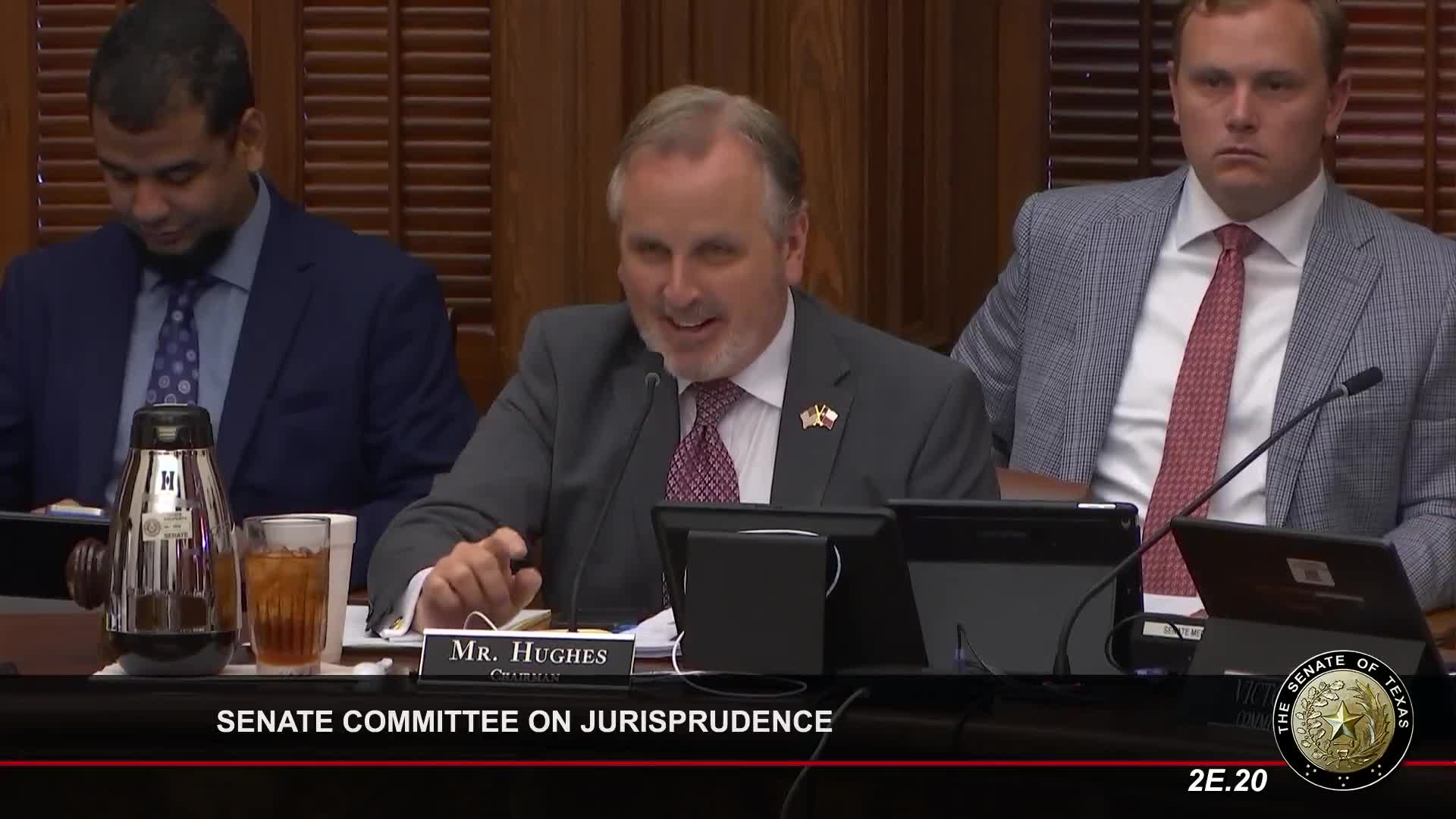Texas Senate Reviews Business Courts and Court Reporter Shortage Issues
May 07, 2025 | Committee on Jurisprudence, Senate, Legislative, Texas
This article was created by AI summarizing key points discussed. AI makes mistakes, so for full details and context, please refer to the video of the full meeting. Please report any errors so we can fix them. Report an error »

In a pivotal meeting of the Texas Senate Committee on Jurisprudence held on May 7, 2025, discussions centered around the pressing issues of court reporter shortages and the establishment of specialized business courts. The atmosphere was charged with a sense of urgency as committee members sought solutions to these challenges that impact the judicial system across the state.
Ronald Morgan, director of the Judicial Branch Certification Commission, addressed the committee, shedding light on the multifaceted nature of the court reporter shortage. He explained that while over 2,000 court reporters are registered, many are reluctant to fill vacancies in rural areas due to lower pay compared to urban centers. This disparity has led to a significant lack of interest in positions that remain unfilled, particularly in remote locations like Alpine. Morgan emphasized the need for legislative action to address this issue, aiming to create a bill that would encourage more court reporters to serve in these underserved regions.
The committee also reviewed Senate Bill 2838, which pertains to the operation and jurisdiction of newly established business courts in Texas. These courts, designed to handle high-stakes business disputes, have received positive feedback since their inception. The bill proposes adjustments to enhance their functionality, including lowering the monetary threshold for cases from $10 million to $5 million, thereby broadening access for larger business claims. However, it maintains the current funding structure, which does not extend to rural areas.
Senator Hughes raised questions regarding the compensation differences between business court judges and state district court judges, highlighting the need for clarity as the committee navigates the complexities of the proposed legislation. The discussions underscored a commitment to refining Texas's judicial framework, ensuring it remains competitive with other states that have successfully implemented specialized courts.
As the meeting concluded, the committee left both bills pending, signaling ongoing deliberations that will shape the future of Texas's judicial landscape. The outcomes of these discussions could have lasting implications for court operations and the accessibility of legal resources across the state, particularly in rural communities.
Ronald Morgan, director of the Judicial Branch Certification Commission, addressed the committee, shedding light on the multifaceted nature of the court reporter shortage. He explained that while over 2,000 court reporters are registered, many are reluctant to fill vacancies in rural areas due to lower pay compared to urban centers. This disparity has led to a significant lack of interest in positions that remain unfilled, particularly in remote locations like Alpine. Morgan emphasized the need for legislative action to address this issue, aiming to create a bill that would encourage more court reporters to serve in these underserved regions.
The committee also reviewed Senate Bill 2838, which pertains to the operation and jurisdiction of newly established business courts in Texas. These courts, designed to handle high-stakes business disputes, have received positive feedback since their inception. The bill proposes adjustments to enhance their functionality, including lowering the monetary threshold for cases from $10 million to $5 million, thereby broadening access for larger business claims. However, it maintains the current funding structure, which does not extend to rural areas.
Senator Hughes raised questions regarding the compensation differences between business court judges and state district court judges, highlighting the need for clarity as the committee navigates the complexities of the proposed legislation. The discussions underscored a commitment to refining Texas's judicial framework, ensuring it remains competitive with other states that have successfully implemented specialized courts.
As the meeting concluded, the committee left both bills pending, signaling ongoing deliberations that will shape the future of Texas's judicial landscape. The outcomes of these discussions could have lasting implications for court operations and the accessibility of legal resources across the state, particularly in rural communities.
View full meeting
This article is based on a recent meeting—watch the full video and explore the complete transcript for deeper insights into the discussion.
View full meeting
